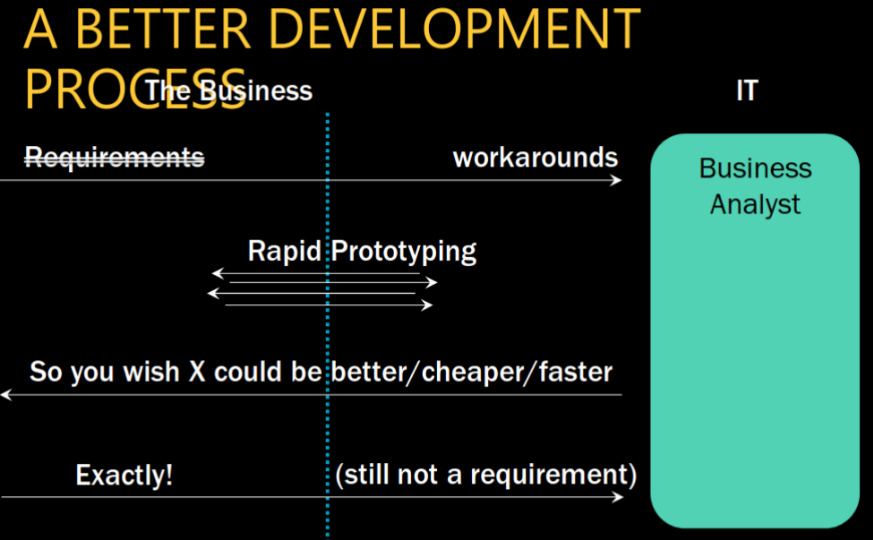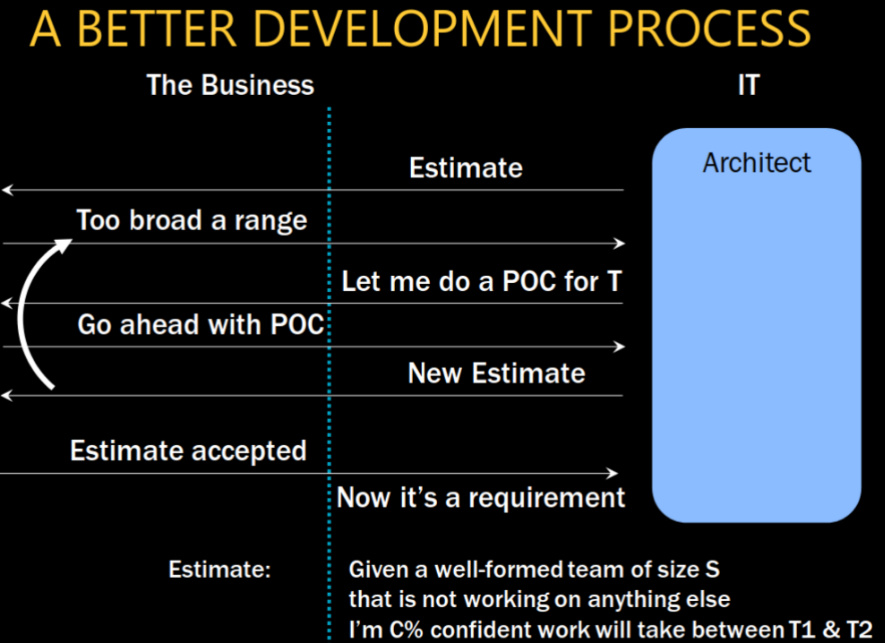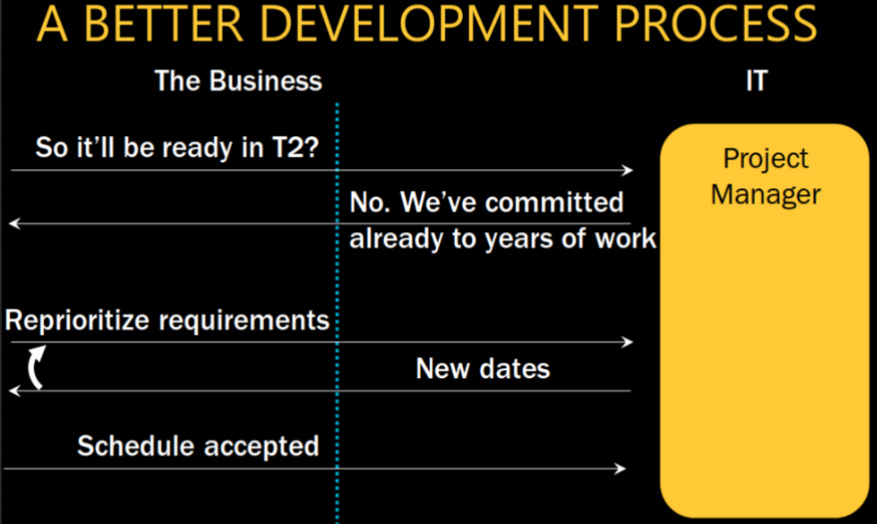(src: Course: ADSD - Fallacies of Distributed Computing)
role: Business Analist

role: Architect

role: Project Manager

Estimates Given a - well-formed team (worked together) - with required skills (has done such things before) - of size S

I like how estimates formulated this way, drive Proof-of-Concepts with the sole focus of getting better estimates. This then lowers risk & variability by shifting that to the beginning of the project. Kinda the same principle as Technique: Walking Skeleton for incremental development where you put the path-to-prod at the beginning of a project, because it’s often the most variable thing.